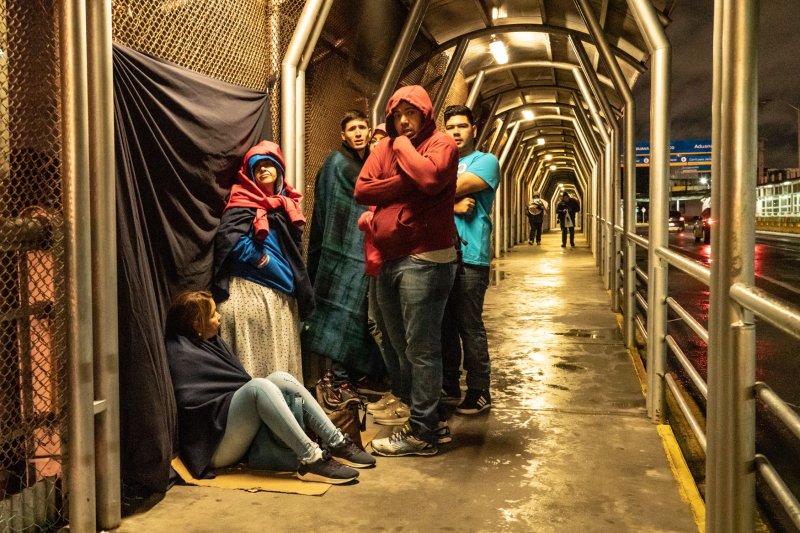W. M. Keck Observatory and Duke Energy's REC Solar announce completion of major sustainability project in Hawaii
- 133-kW rooftop solar site is world's largest commercial solar system installed at highest altitude
CHARLOTTE, N.C. and MAUNA KEA, Hawaii, Dec. 10, 2020 /PRNewswire/ -- Duke Energy's REC Solar and W. M. Keck Observatory have completed the world's largest commercial solar system installed at the record-breaking altitude of 13,600 feet.
The rooftop solar project – located near the summit of Mauna Kea, a dormant volcano on the Big Island of Hawaii – will reduce Keck Observatory's carbon footprint and lower its cost of energy.
The solar photovoltaic (PV) system is located on the rooftop of Keck Observatory's telescope facility, between the domes of the twin Keck I and Keck II – among the world's largest optical and infrared telescopes. The system will annually produce 259.1 MWh of energy, which will reduce the observatory's electric power needs by about 10-15% and eliminate 183 metric tons of carbon emissions.
"Incorporating renewable energy generators such as solar PV is important to Keck's core values of stewardship and service. It will reduce our reliance on electricity derived mainly from fossil fuels, which underscores our efforts to be good stewards of the planet," says project lead Mark Devenot, infrastructure specialist at Keck Observatory.
Hawaiian Electric approved operation of the PV system on Sept. 30, 2020. The system consists of a 133-kW photovoltaic array and 332 solar panels that are strategically placed on the unique 20,940-square-foot ballasted roof to avoid snow and ice fall from the domes, as well as high winds that occasionally occur a few times a year.
"One of the biggest challenges was attaching the PV array to this type of roof, which has no structural framework to anchor the system," says Devenot.
To address this issue, the solar system was custom engineered for the unique ballasted roof design and to support high winds. The team also had to deal with working at high altitude, which averaged 40% less oxygen than at sea level.
"Incorporating rooftop solar at Keck Observatory has been a special experience for the REC Solar team due to the project's focus on science, safety and innovation," says Dan Alcombright, managing director, growth implementation at Duke Energy. "Our team remained respectful of land and wind limitations throughout construction and leveraged our local experience and detailed weather data to engineer solar with specialized mechanical attachments that can handle the wind gusts and climate of a Pacific island at high altitude. We're pleased to be able to provide Keck with a viable energy solution that positively impacts both their organization and the environment."
At high altitude, the panels will catch more photons and produce more energy than at sea-level locations. This is because sunlight atop Mauna Kea doesn't have to travel through as much of the Earth's atmosphere where the photons could be absorbed by something else. Having 40% less atmosphere, which is one of the reasons that makes Mauna Kea one of the best places on Earth to conduct astronomy, also makes for efficient solar energy generation.
REC Solar has developed more than 100 commercial and utility-scale solar projects across the Hawaiian Islands, including Keck Observatory's Waimea headquarters in 2013. This new rooftop solar installation at Keck Observatory's telescope facility on Mauna Kea provides a unique research opportunity for the team to gather data on how solar panels operate in a thinner atmosphere with a high UV index and under higher than average winds. The team will continue to monitor and analyze these conditions for future solar installations at high altitudes.
W. M. Keck Observatory
The W. M. Keck Observatory telescopes are among the most scientifically productive on Earth. The two 10-meter optical/infrared telescopes on the summit of Mauna Kea on the Island of Hawaii feature a suite of advanced instruments including imagers, multi-object spectrographs, high-resolution spectrographs, integral-field spectrometers, and world-leading laser guide star adaptive optics systems. Keck Observatory is a private 501(c) 3 non-profit organization operated as a scientific partnership among the California Institute of Technology, the University of California, and the National Aeronautics and Space Administration. The Observatory was made possible by the generous financial support of the W. M. Keck Foundation. The authors wish to recognize and acknowledge the very significant cultural role and reverence that the summit of Mauna Kea has always had within the Native Hawaiian community. We are most fortunate to have the opportunity to conduct observations from this mountain. For more information, visit: www.keckobservatory.org.
Duke Energy Renewables / REC Solar
REC Solar is a business unit of Duke Energy Renewables, a nonregulated affiliate of Duke Energy (DUK) that operates 3,000 MW of wind and solar generation facilities across the U.S. Based in San Luis Obispo, Calif., with offices in Petaluma, Calif., and Honolulu, Hawaii, REC Solar has installed over 800 solar, energy storage, microgrid, and EV fleet charging sites for commercial, public sector and utility-scale customers. The company provides design, engineering, financing, operations and maintenance services, allowing for a simplified customer experience. Visit Duke Energy Renewables or REC Solar for more information.
Media contact: Jennifer Garber
Media line: 800.559.3853
SOURCE Duke Energy

Related Links
https://www.duke-energy.com/renewable-energy













